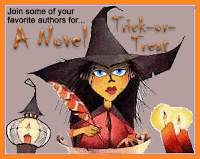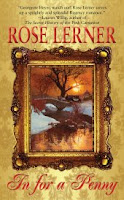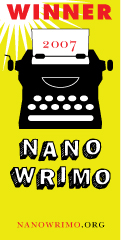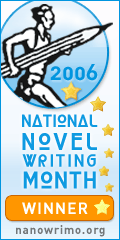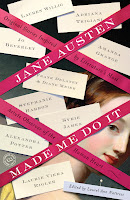 Today’s guest is someone I’ve known online for sometime but met in person just this last weekend at the JASNA-AGM in Fort Worth, TX: Laurel Ann Nattress, the editor of a fabulous anthology of Austen-inspired stories, Jane Austen Made Me Do It (and I’m one of the authors!). We had a terrific book launch party for JAMMDI, my Jane Austen: Blood Persuasion, and the newest release from another anthology contributor, Carrie Bebris’ The Affair at Lime.
Today’s guest is someone I’ve known online for sometime but met in person just this last weekend at the JASNA-AGM in Fort Worth, TX: Laurel Ann Nattress, the editor of a fabulous anthology of Austen-inspired stories, Jane Austen Made Me Do It (and I’m one of the authors!). We had a terrific book launch party for JAMMDI, my Jane Austen: Blood Persuasion, and the newest release from another anthology contributor, Carrie Bebris’ The Affair at Lime.
A life-long acolyte of Jane Austen, Laurel Ann Nattress is the author/editor of Austenprose a blog devoted to the oeuvre of her favorite author and the many books and movies that she has inspired. She is a life member of the Jane Austen Society of North America, a regular contributor to the PBS blog Remotely Connected and the Jane Austen Centre online magazine. An expatriate of southern California, Laurel Ann lives in a country cottage near Snohomish, Washington. Visit Laurel Ann at her blogs Austenprose and JaneAustenMadeMeDoIt, on Twitter as @Austenprose, and on Facebook as Laurel Ann Nattress.
Tell us the story behind the story–how did this anthology come about?
As a long-time Jane Austen fan, I had read all of her novels numerous times, moved on to the movies and sequels, and started my blog, Austenprose, in 2007. While working with Austenesque authors on publicity for their books, I began to see a thread that connected them all together. What if I edited an anthology of short stories inspired by Austen? At that time, there were many sequels and Austen-inspired novels in print, but no short story collections. My biggest challenge was how to get it published. I had no idea, but asked authors Diana Birchall, Margaret Sullivan and Laurie Viera Rigler for advice. Before I could reach out to anyone with my book proposal, I received an email from an agent of an author who I was working with on my blog thanking me for the great job I had done his client publicize the book. I saw an opportunity and immediately wrote back and pitched my anthology. He was an Austen fan too and immediately loved the idea. Within a week, I had my deal with Ballantine. It was just too surreal.
You’ve anticipated my usual question of whether your book was a hard sell, but that’s an awesome story. Congratulations!
My “road to publication” story is one in a million. When I started my blog years ago, I never dreamed that it would culminate into a book, but it did. One hears horror stories of how authors pitching their novels for years and enduring painful rejections and multiple rewrites before they capture the deal. Many times it never happens. The industry can be brutal. After my deal with Ballantine closed, I felt terribly guilty for about five minutes. I had to remember that I had been working diligently for years and give myself credit for developing relationships with so many of the Austenesque authors. I also had to credit the Fates. My number was up and all my stars and planets were in perfect alignment.
The thought of doing what you did (and dealing with people like me) terrifies me: was it really like herding cats?
Oh Janet. You are such a card. Authors difficult? Naw! You are not the first person to liken authors to herding cats. I am a cat lover, so it was not a challenge. 😉
I was all prepared for diva dramatics, but they did not materialize. Sorry to disappoint, but you were a charm to work with, and so were all other twenty-three authors! Luckily, we had many months to develop stories and edit them. I credit my editor at Ballantine for giving a newbie editor the extra time. It made all the difference in getting stories that the authors had a chance to contemplate and refine before they submitted them. We also allowed a bit of time for rewrites. It was the perfect storm.
Lizzy and Darcy … why do they continue to fascinate us endlessly, as opposed to, for instance, Anne and Wentworth? Do you think another Austen couple could be the next big thing?
Lizzy and Darcy are a hard act to follow. I think that they are legendary because their romance is hard wrought and so satisfying. Lizzy goes from disliking Darcy intensely and rejecting his proposal, to being transformed after seeing his great estate at Pemberley! It may sound mercenary, but in Regency times, a man’s estate was a reflection of his integrity and style. Darcy saving her family’s social reputation by finding the naughty elopees, Lydia and Wickham, and then buying off the groom did not hurt either. It’s hard to pinpoint which of Austen’s couples could ever match them. I don’t think it is possible, but I do root for Catherine and Henry Tilney. Northanger Abbey is terribly underrated and I hope that readers will come to love it and the young hero and heroine more in the future.
Who is your favorite Austen couple?
I tend to like the antagonists in Austen oeuvre more that the feature romantic couple. They can be so much more interesting. Brother and sister Mary and Henry Crawford from Mansfield Park are just twisted enough to be intriguing, and Lady Susan Vernon and Reginald De Courcy in Lady Susan are about as far from innocent star crossed lovers as you can get. I guess you can say I like to be shocked by breaches in propriety – all within the realm of proper Austen decorum mind you! If I had to choose a nice couple to root for, it would be Harriet Smith and Robert Martin from Emma. They end up together after a few detours and their personalities leave the door wide open for some bumps in their married life.
Which is your favorite Austen? Why?
I will be presumptuous and assume that you mean my favorite Jane Austen book, right? Oh this is so hard to choose. I could give the politically correct answer and say that my favorite Jane Austen novel is the one I am currently reading, but I won’t, and will go out on a limb and say it wavers between Mansfield Park and Lady Susan. Are you shocked? Oh, I do dearly love to laugh with Pride and Prejudice and get pierced through my soul with Persuasion, but I am one to root for the underdog, so I will stick with my first choices. Both stories have very strong antagonists that are actually the protagonists. I love that dichotomy.
Which biography of Austen would you recommend?
Definitely Claire Tomalin’s Jane Austen: A Life. Great research and scholarly detail, but told in an interesting fiction-like manner.
Tell us about the pemberley.com contest and the judging process for it.
The Jane Austen Made Me Do It Short Story contest was an incredible challenge for me all around, but it was also great fun too! Jane Austen was devoted to her craft and has been inspiring writers for centuries. A short story contest for unpublished authors was in spirit with her ideals, so I pitched the idea to my editor and she liked it also. We never expected to receive eighty-eight stories! With the help of Myretta Robens at The Republic of Pemberley , we proofed, formatted and posted on the contest board about three quarters of those stories within the last three days! Talk about writers procrastination! The voters narrowed down the list to the Top Ten and my editor and I chose the Grand Prize winner. It was a tough call. I trusted my initial gut reaction to the winning story. The Love Letter by Brenna Aubrey made me cry. It was an incredible debut story that I hope many will have the chance to read.
What’s next for you?
Hmm? That’s a tricky question Janet. If I answered you honestly, I would let the cat out of the bag. Since I like to herd cats, I will leave that to your imagination.
Thanks for hosting me today on Riskies during my Grand Tour of the blogosphere in celebration of the release of Jane Austen Made Me Do It. It was a pleasure.
Enter a chance to win one copy of Jane Austen Made Me Do It by leaving a comment by Sunday, October 23, stating what intrigues you about reading an Austen-inspired short story anthology. Winners to be drawn at random and announced on October 25. Shipment to US and Canadian addresses only. Good luck to all!


